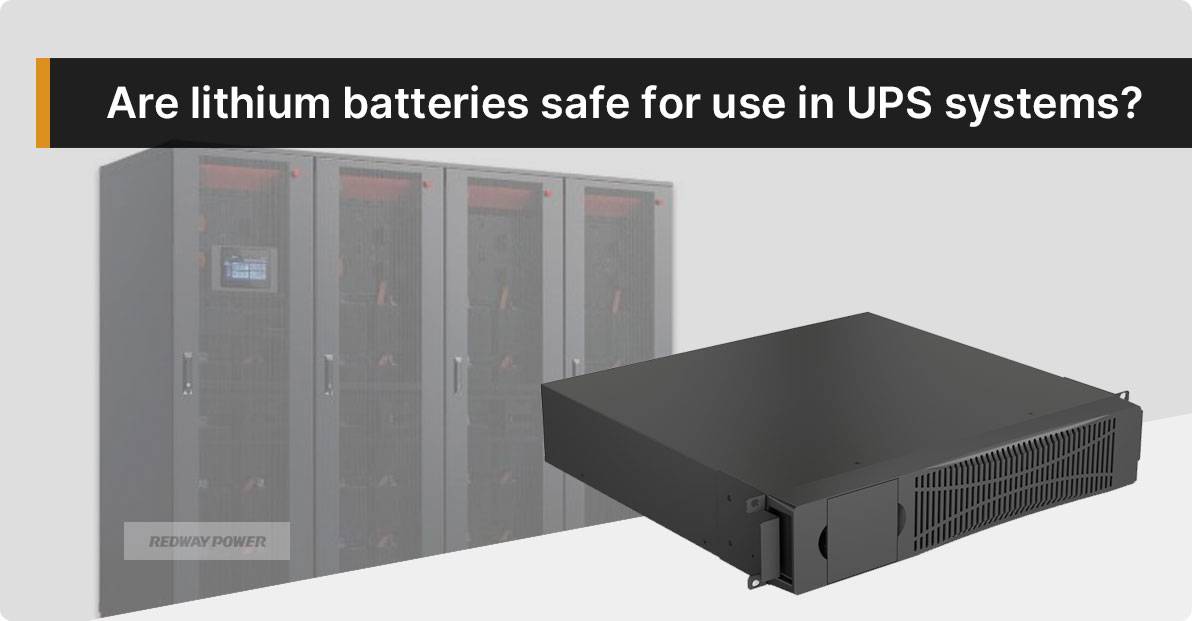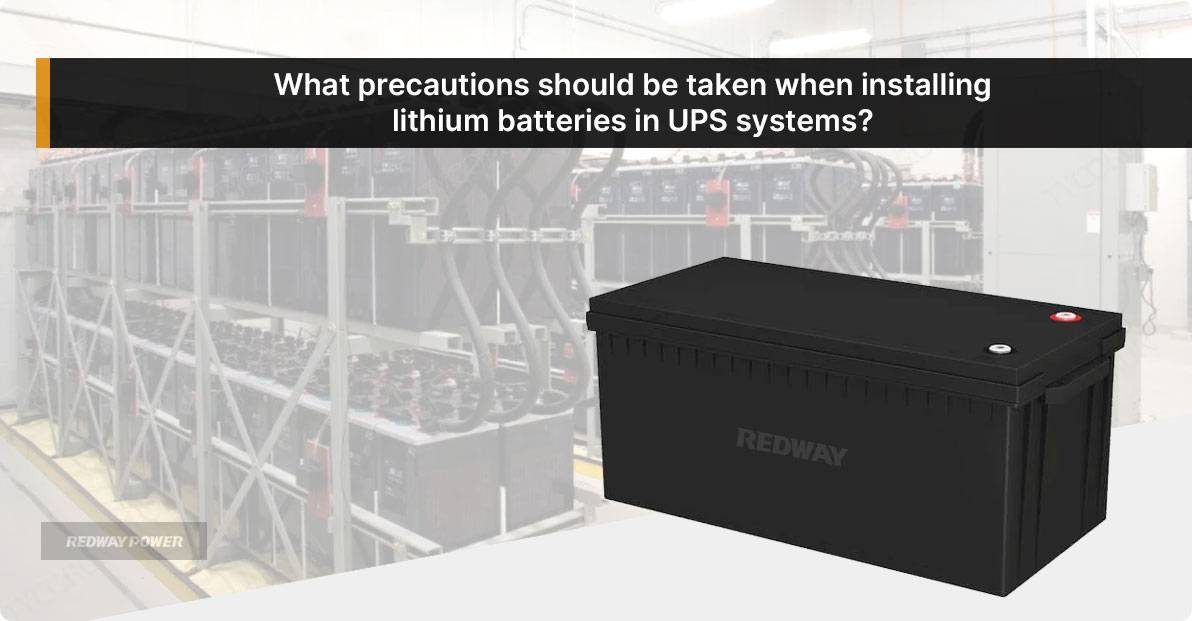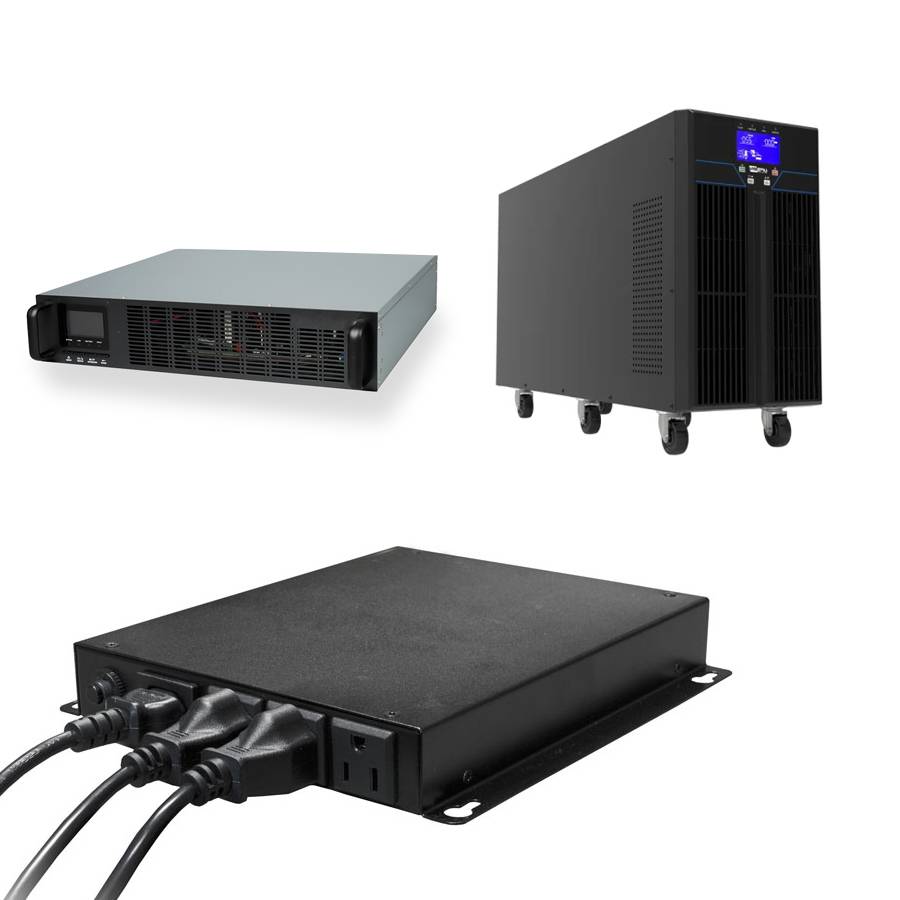UPS Lithium Batteries OEM/ODM Manufacturer
UPS Lithium Batteries, One-Stop Solution
Redway Power stands out as a leading global manufacturer of Lithium-ion UPS Batteries, specially designed for Uninterruptible Power Supply systems. These batteries deliver superior energy density, a prolonged lifespan, and rapid charging capabilities. Redway's Lithium-ion UPS Batteries are maintenance-free and temperature-tolerant, offering a compact design for versatile installation.
With these batteries, Redway ensures reliable backup power, making them ideal for diverse applications. The commitment to precision manufacturing processes underscores their dedication to providing top-notch Lithium-ion UPS Batteries that prioritize efficiency, durability, and seamless integration into UPS systems, meeting the demands of today's power backup requirements.
What is the wholesale price of lithium battery?
You can click contact us or phone call us. We will give you multiple options of price.
Is Redway Power a trading company or factory?
Redway Power is a company with its own factory, integrating research, development, production, and sales.
How about the quality of Redway's LiFePo4 Battery product?
Redway Power boasts over 12 years of experience in LiFePO4 battery production and is an authorized supplier for CATL and BYD.
Can you do an OEM/ODM project?
Yes, we have engineers available to assist in designing and developing any related products.
What’s your MOQ?
MOQ varies according to battery voltage and capacity.
What payment terms can we accept?
We accept TT/Paypal/West Union, etc.
UPS Lithium Batteries Knowledge
Yes. Lithium batteries can be safe for UPS systems if handled properly. Follow these guidelines: 1. Choose high-quality batteries with safety certifications. 2. Ensure a battery management system (BMS) to monitor voltage and temperature. 3. Maintain suitable temperature and ventilation. 4. Use proper enclosures and charging systems. 5. Handle and dispose of batteries carefully. Adherence to these precautions ensures reliable and secure UPS operation.

When it comes to ensuring the safety of lithium batteries in UPS systems, there are essential steps to follow:
- Quality Assurance: Opt for lithium batteries from trusted brands with safety certifications like UL. These batteries undergo rigorous testing to meet industry standards.
- Battery Management System (BMS): A BMS is crucial for monitoring battery health, preventing overcharging, and balancing cell voltages. It ensures safe operation and maximizes battery lifespan.
- Proper Handling and Environment: Maintain suitable temperature and ventilation for the batteries. Avoid extreme heat or cold, as it can impact battery performance. Also, handle and dispose of batteries according to safety guidelines. These precautions ensure reliable and secure UPS operation.
By adhering to these guidelines, users can safely harness the benefits of lithium batteries in their UPS systems.
Lithium-ion batteries offer clear benefits for UPS systems. They last longer, weigh less, and take up less space than traditional lead-acid batteries. Additionally, they recharge faster, withstand higher temperatures, and have lower long-term costs. Equipped with advanced management systems, they ensure safe and efficient power backup, making them a preferred choice for reliable UPS solutions.
Let’s break down the benefits of using lithium-ion batteries in UPS systems in simple terms:
Longer Lifespan:
- Lithium-ion batteries last much longer than traditional ones, meaning you won’t have to replace them as often. This saves money and reduces hassle.
Smaller and Lighter:
- Lithium-ion batteries are smaller and lighter than regular batteries, which makes them easier to handle and install. They also take up less space, which is great if you have limited room.
Faster Charging and Reliable Performance:
- These batteries charge up quickly, so your UPS system will be ready to go when you need it most. Plus, they can handle high temperatures better, so you can count on them to keep working even in tough conditions.
In essence, lithium-ion batteries are a smart choice for UPS systems, offering durability, convenience, and dependable performance.
When installing lithium batteries in UPS systems, follow these safety tips:
- Review the Lithium Battery Safety Document.
- Ensure proper ventilation and location.
- Regularly monitor the UPS system.
- Use a UPS with automatic charging adjustment.
- Store batteries in a cool, dry place.
- Check safety labels and warnings for clarity.
Remember, safety is key for reliable operation.

When looking to upgrade UPS systems with lithium batteries, consider compatibility, space, and safety. Check voltage, capacity, and ensure a suitable battery management system. Lithium batteries offer longer lifespan, faster charging, and reduced maintenance. Consult professionals for safe installation. Visit resources like Eaton for further insights on retrofitting lithium-ion batteries into existing UPS setups.
Here’s what you need to know:
Compatibility Check:
- Ensure your current UPS setup can support lithium batteries. Older models may need modifications.
- Confirm the voltage requirements and physical space available for the new batteries.
Benefits of Lithium Batteries:
- Lithium batteries last longer and charge faster than traditional options.
- They also require less maintenance, offering better efficiency and cost savings.
Consult Professionals:
- Seek advice from UPS specialists or technicians for safe and efficient installation.
- Explore resources like Eaton for detailed insights on retrofitting lithium-ion batteries into your UPS system.
The lifespan of lithium batteries in UPS applications varies. Lithium-ion batteries last around 10 years, compared to 3-5 years for VRLA batteries. Li-ion batteries offer extended lifespan, reduced costs, and environmental benefits. They’re becoming popular in UPS systems for sustainability and efficiency, addressing the increasing demand for reliable power and green energy solutions.

When it comes to the lifespan of lithium batteries in UPS applications, it’s important to understand the differences between lithium-ion (Li-ion) batteries and traditional valve-regulated lead-acid (VRLA) batteries.
Lithium-Ion (Li-ion) Batteries:
- Li-ion batteries typically last longer than VRLA batteries, with a lifespan of around 10 years.
- They offer extended longevity, requiring replacement less frequently compared to VRLA batteries, which usually last between 3 to 5 years.
Benefits of Li-ion Batteries:
- Li-ion batteries not only last longer but also contribute to cost savings and environmental benefits.
- They are becoming increasingly popular in UPS systems due to their superior performance, reduced maintenance needs, and lower environmental impact.
UPS Applications:
- Data centers and other facilities are increasingly adopting Li-ion batteries in their UPS systems to ensure reliable power supply and reduce operational costs.
- The longer lifespan of Li-ion batteries translates to improved reliability and efficiency in UPS applications, meeting the growing demand for sustainable energy solutions.
In summary, Li-ion batteries offer a more sustainable and efficient energy storage solution for UPS applications, providing longer-lasting performance and environmental benefits.
When shipping lithium batteries with UPS, it’s essential to follow regulations. There are two types: rechargeable lithium-ion and non-rechargeable lithium metal batteries. Guidelines vary based on battery type and whether they’re shipped with or without equipment. Compliance ensures safe transport, with simplified rules for small batteries. Pre-approval is required for some shipments. Adhere to UPS guidelines for safe shipping.
Here’s a breakdown:
Types of Lithium Batteries:
- There are two main types: lithium-ion and lithium metal batteries.
- Lithium-ion batteries are rechargeable and often found in devices like phones and laptops, while lithium metal batteries are typically non-rechargeable.
Shipping Regulations:
- Guidelines differ based on battery type and whether they’re shipped with or without equipment.
- Compliance with these regulations is crucial to ensure safe transportation of batteries.
Specific Guidelines:
- Different scenarios, such as batteries contained in equipment or shipped alone, have specific rules.
- Pre-approval may be required for certain types of shipments, particularly those involving lithium metal batteries.
Adhering to these guidelines helps prevent accidents and ensures smooth shipping processes.


